Duchess of Cambridge reveals secret project for parents that's 'like gold dust'
The Duchess of Cambridge has revealed she has secretly been working on a project to help parents, and likened it to “gold dust” when it comes to raising children.
Kate, a mother of three, has been working with the BBC on a resource called Tiny Happy People, and says she wished she could have had access to something similar when she was a new mum.
The project helps parents as they develop their children’s language and communication skills.
She said: “It’s information like that I wish I had had as a first-time mum, but, for so many parents, it’s gold dust really for families to be given those tips and tools to be able to use, particularly in these first five years.”
The duchess worked in secret with the BBC on the initiative and visited Broadcasting House last November to work on video resources and social media content.
She contributed to two cartoon films, one on the “science of singing to bump” while pregnant, and another on how eye contact is key to baby’s language learning.
The BBC said the duchess worked on the character and background development for both cartoons.
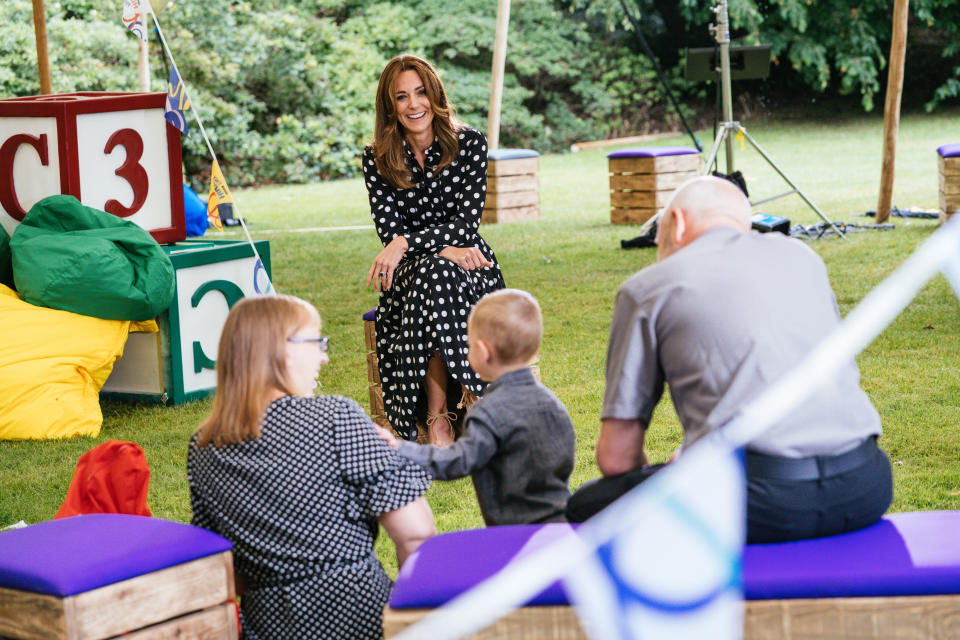
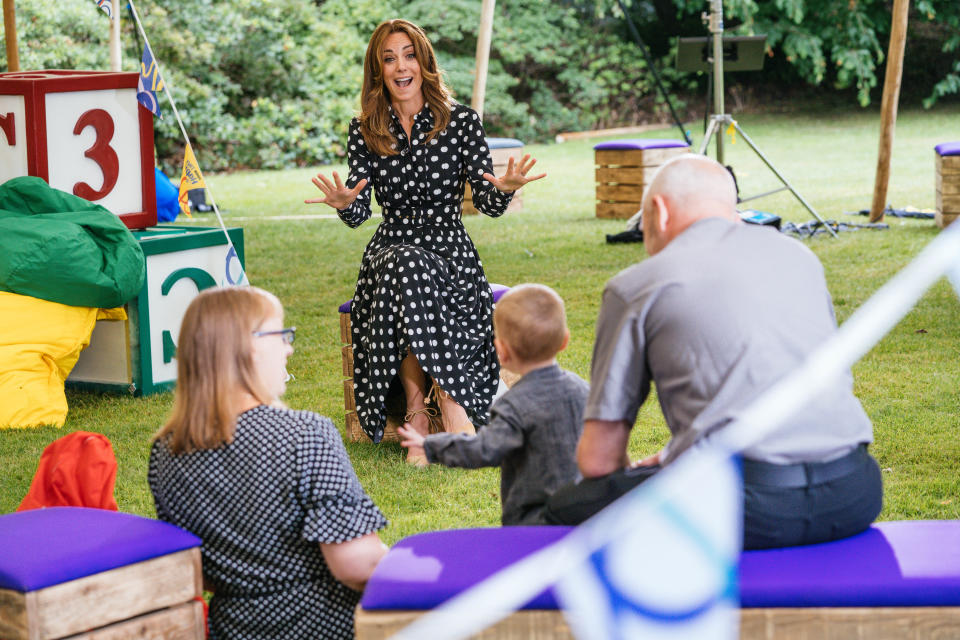
Kate spoke to Louise Minchin from BBC Breakfast for an interview which was broadcast on Tuesday morning.
Read more: Duchess of Cambridge surprises schoolchildren in call with Wimbledon champion Andy Murray
The duchess also met with three families who have been part of the creation of the resources and have piloted the ideas available online.
She held a socially distanced chat in a garden with Ryan and his eight-month-old daughter Mia; Henrietta, Abu and their 11-month-old daughter Amirah; and Kerry, and Darren and their two-year-old son Dexter.
Speaking to the BBC, she said there was a “massive gap” in the support parents receive before their children start school.

She told Minchin: “In the first few months, there’s a huge amount of support from midwives and health visitors.
“But from then onwards, there’s a massive gap before they then start school.
“Hearing some of the things from the parents today, Ryan at the beginning, saying how his baby has got five different cries.
“He’s learnt a huge amount from Tiny Happy People and it’s information like that I wish I had had as a first-time mum, but, for so many parents, it’s gold dust really for families to be given those tips and tools to be able to use, particularly in these first five years.”
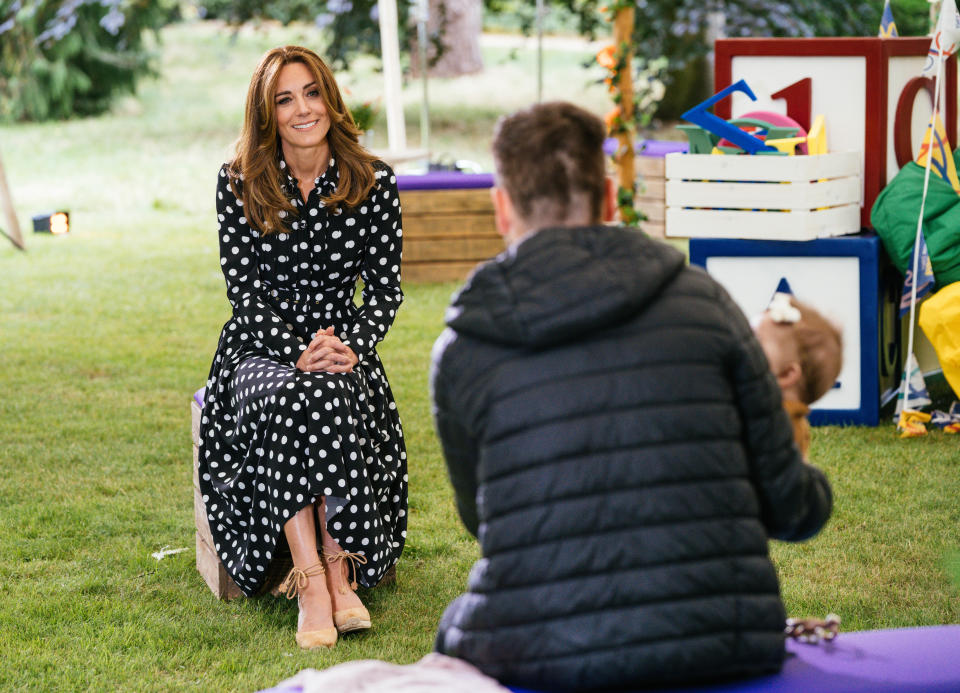
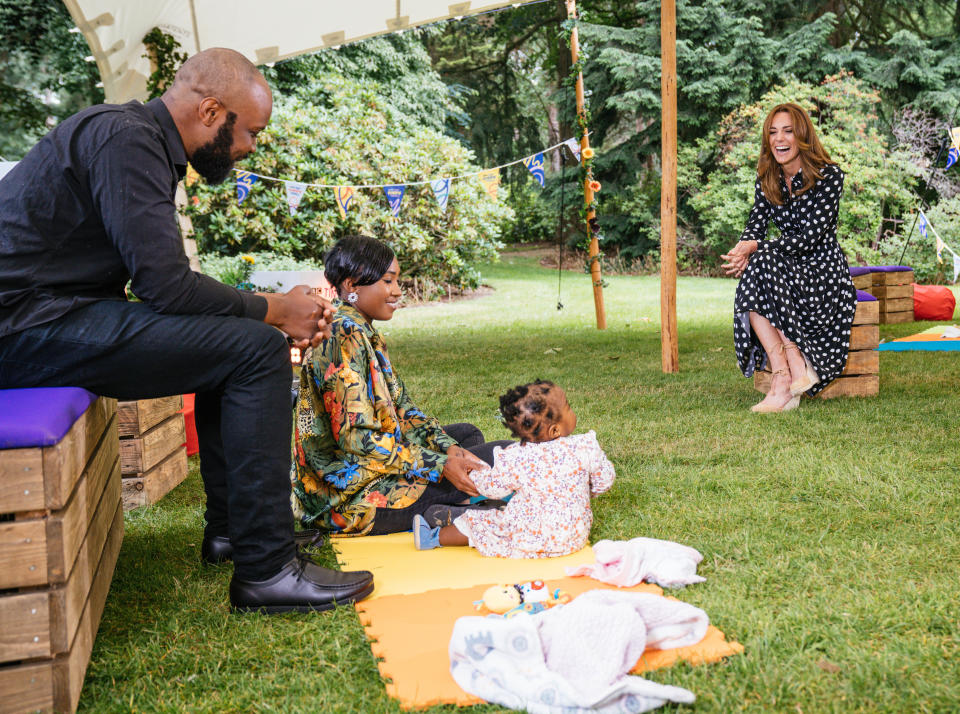
Read more: The Duchess of Cambridge’s floral Faithfull The Brand dress is back in stock
Early Years development has been a key focus of the duchess’s royal work, but it has taken a bit of a back seat during the coronavirus pandemic.
She told the BBC she is “very passionate” about Early Years work, calling the science behind it “extraordinary”.
She said: “90% of our adult brain grows before the age of five and just shows what a precious time this is and what an amazing opportunity us as parents have got to really nurture their minds, and really put them in the best possible position.”
Before lockdown Kate was working on a nationwide survey to find out what people thought were the most important formative factors in early childhood.
Tiny Happy People encourages parent and carers to talk to children from an early age.
In England, one in four children are behind in their language learning when they start primary school, according to figures, and it rises to 42% in some parts.
The platform features free films, articles, quizzes and parenting tips, helping parents and carers to nurture language skills from pregnancy.
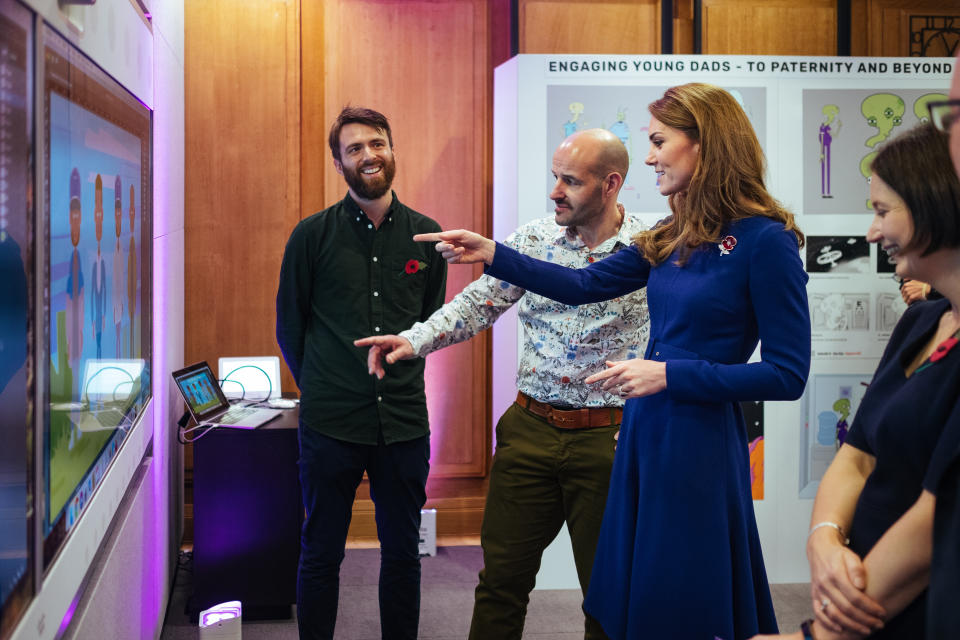
Read more: How the royals tackle parenting
It also has tips on staying at home during the pandemic, including creating a calming bedtime routine and helping to ease worries as lockdown lifts.
The duchess said: “Families and carers are at the heart of nurturing the next generation of happy, healthy adults, but sometimes it can be hard to know where to turn to for advice.
“Tiny Happy People is an invaluable resource which provides parents and carers with support and tips, as well as simple activities to ensure children develop the language skills they need to have the best possible start in life.
“I am delighted to have been part of its journey and hope families across the UK will enjoy exploring the resources.”
Kensington Palace said the Cambridges’ Royal Foundation will collaborate with the BBC on the long-term roll-out of the initiative.



